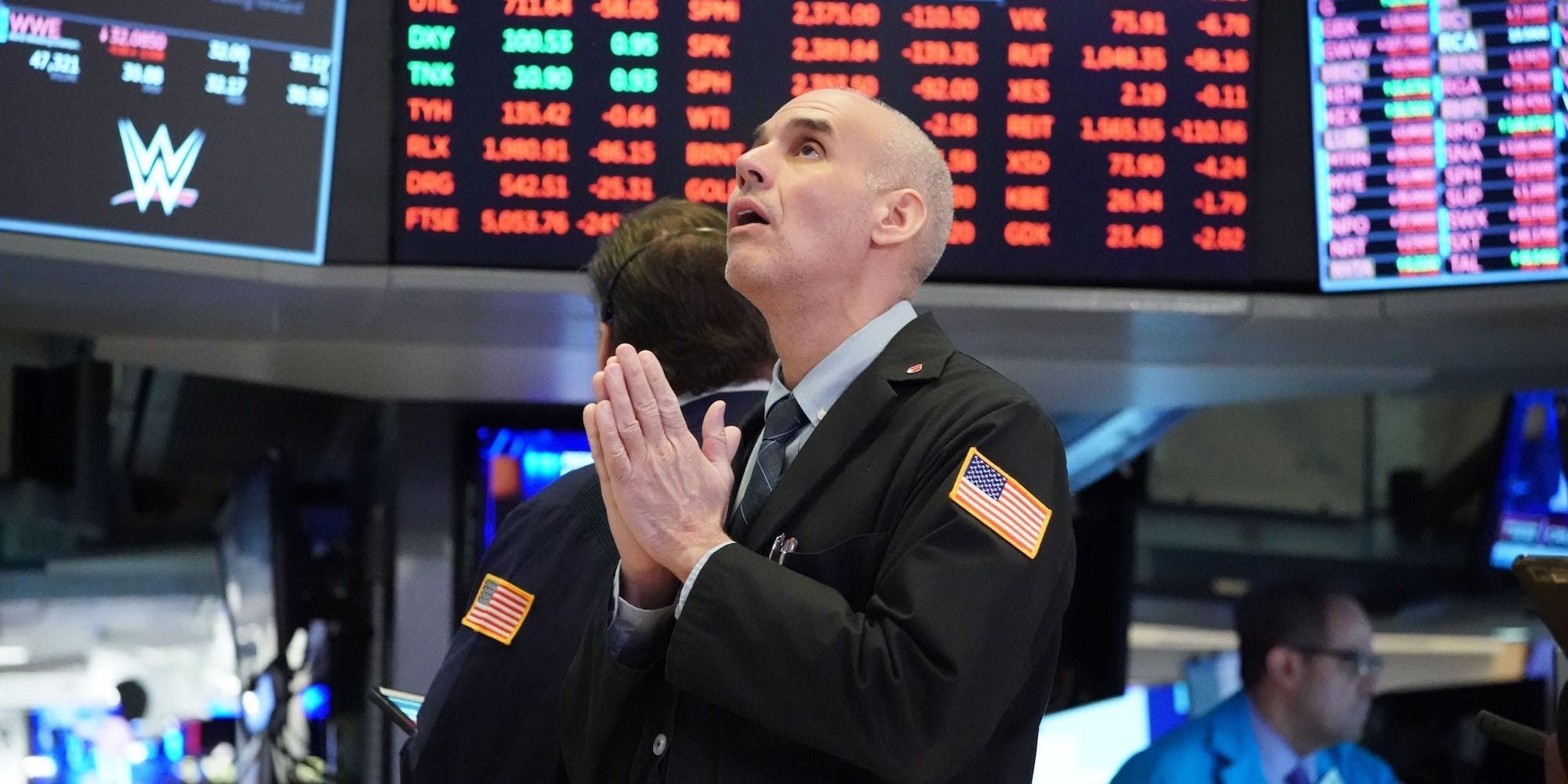
- Low interest rates and improving stock market fundamentals means investors should stick with stocks, Oppenheimer said in a note on Monday.
- Oppenheimer highlighted that stocks face little competition from other assets given that the 10-year US Treasury yield is at 1.2%.
- And strong earnings results only improved the outlook for stocks going forward, Oppenheimer said.
- Sign up here for our daily newsletter, 10 Things Before the Opening Bell.
Low bond yields and improving corporate earnings mean stocks face little competition from other asset classes and investors should continue to buy equities, Oppenheimer said in a note on Monday.
"With bond yields this low and fundamentals improving, stocks appear to have no competition," Oppenheimer's chief investment strategist John Stoltzfus said.
The 10-year US Treasury yield stood at 1.26% on Monday, well below its recent peak of 1.75% in March. The persistently low yield for fixed income has forced capital allocators to weigh more heavily into stocks than bonds as they seek to meet their investment objectives.
"There lies an increased appetite for equities from individuals and institutions for broader exposure to stocks that's driven less by enthusiasm, excitement, or greed but rather by the need to find investment vehicles that can offer a potential to meet goals and objectives that simply cannot be provided by fixed income instruments with interest rates as low as they are today," Stoltzfus explained.
Meanwhile, company fundamentals are improving as more corporations report second quarter earnings results that are besting analyst estimates. Of the 120 companies that have reported earnings so far, 88% are beating earnings estimates by a median of 14%, while 86% are beating revenue estimates by an average of 6%, according to data compiled by Fundstrat.
The combination of strong corporate earnings and low or negative yields across much of fixed income has produced "a time for equities like no other that we have seen since we joined the Wall Street workforce nearly four decades ago," Stoltzfus said.
And while ongoing sell-offs in bull markets "are not uncommon and indeed are healthy for the market," investors should keep their eye on the long-term and treat sell-offs as a buying opportunity as stocks continue to climb the proverbial "wall of worry," he concluded.










